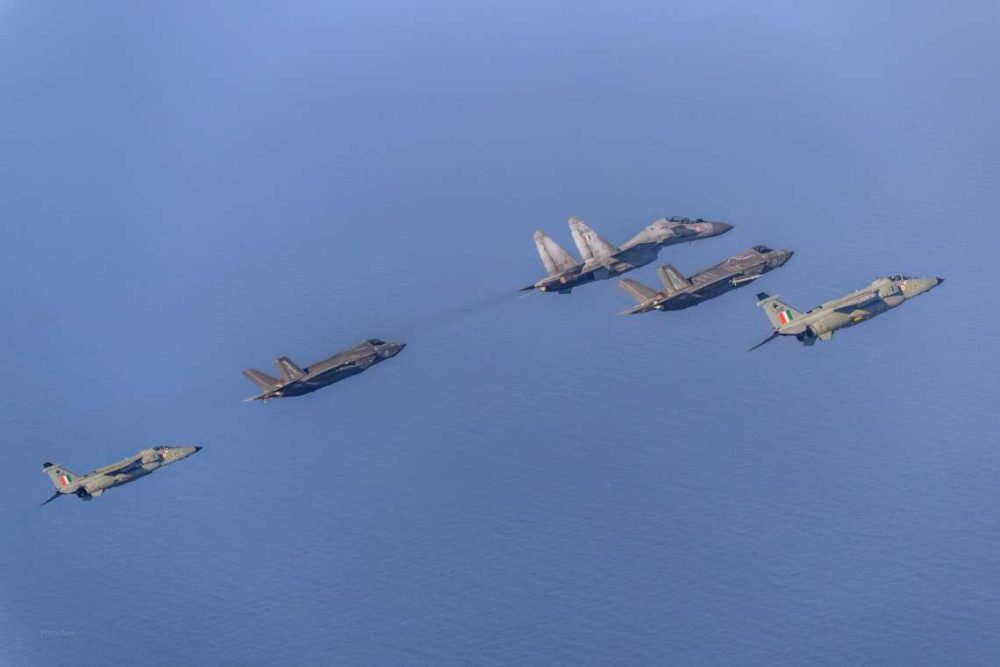It was paratroopers of the Indian Army and Indian Air Force chased the CADS-500 in air and landed simultaneously, the Ministry said…reports Asian Lite News.
India’s Aerial Delivery Research and Development Establishment (ADRDE) has successfully conducted flight demonstration of Controlled Aerial Delivery (CAD) System of 500 kg capacity, giving a boost to the precise delivery of heavy payload at a predetermined location by making use of manoeuvrable capabilities of Ram Air Parachute (RAP).
According to the Ministry of Defence, the CAD performance was demonstrated on Saturday at Drop Zone, Malpura from an altitude of 5000 metres.
It was para-dropped from AN32 aircraft and then steered to the pre-designated landing point in autonomous mode.
Eleven paratroopers of the Indian Army and Indian Air Force chased the CADS-500 in air and landed simultaneously, the Ministry said.
According to the Ministry, CADS uses Global Positioning System for the coordinates, altitude and heading sensors for the heading information during its flight.
The CADS, with its onboard electronics unit, autonomously steers its flight path using waypoint navigation towards target location by operating controls, the Ministry said.
ADRDE, Agra is an R&D laboratory of Defence Research and Development Organisation (DRDO) and the flight demonstration was part of a series of activities organized towards celebrating ‘Azadi Ka Amrit Mahotsav’, commemorating 75 years of Independence, the Ministry added.
Agni P tested again
The new generation nuclear-capable ballistic missile Agni P (Agni Prime) was successfully tested on Saturday for the second consecutive time this year.
The Defence Research and Development Organisation (DRDO) conducted the test from Dr APJ Abdul Kalam island off the coast of Odisha, the Ministry of Defence said. The first successful test had been carried out from the same place on June 28 this year.
Agni P is a new generation advanced variant of the Agni class of missiles with range capability between 1,000 and 2,000-km
Various telemetry, radar, electro-optical stations and down range ships positioned along the eastern coast tracked and monitored the missile trajectory and parameters. “The missile followed textbook trajectory meeting all mission objectives with high level of accuracy,” the defence ministry said.
The Agni P is a two-stage canisters solid-propellant ballistic missile with dual redundant navigation and guidance system. This second flight test has proven the reliable performance of all the advanced technologies integrated into the system, the defence ministry pointed out.
The ballistic missile weighs 50 per cent less than Agni III and has new guidance and a new generation of propulsion. Since the missile is canisterised, it can be launched from rail and road and stored for a longer period and transported all across the country as per operational requirements.
Defence Minister Rajnath Singh congratulated DRDO for the successful flight test and expressed his happiness at the excellent performance of the system.
Secretary Department of Defence R&D and Chairman DRDO G Satheesh Reddy appreciated the efforts of the team for the second development flight trial with many additional features. He congratulated them for the consecutive success within the same calendar year. (India News Network)














